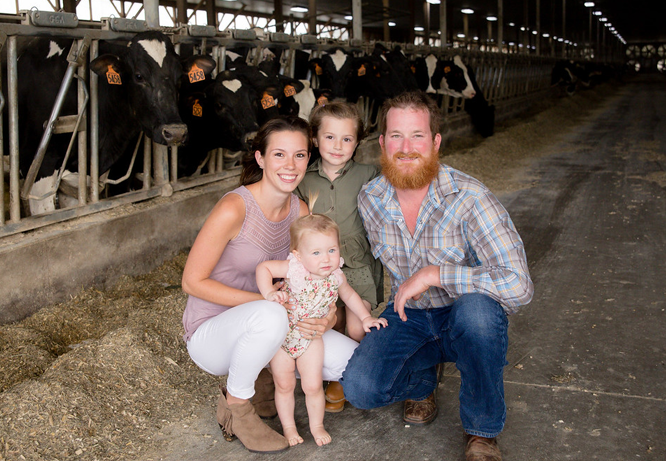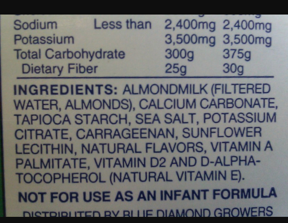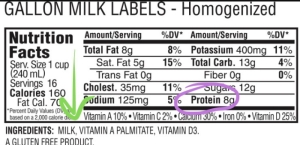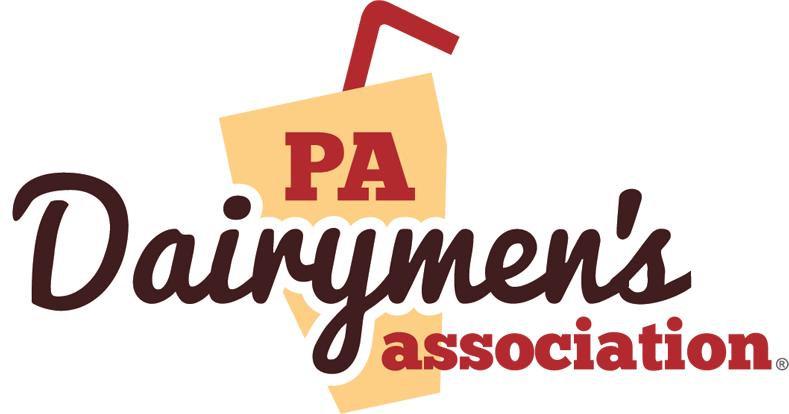
Guest blogger, Jessica Peters, is a 5th generation dairy farmer in northwest Pennsylvania.
Dairy farmers are hard-working people who like straight-talk. Every day, they are putting in long-hours working on the farm to produce top-quality milk. So, when people call the milk’s nutrition or safety into question, it causes them concern. There’s so much more behind the word milk.
A few months ago, my local paper ran an article about dairy farmers wanting to remove the word milk from non-dairy products. In the comment section, a woman remarked that it was “naïve to say that people buying nut milks are under the impression it has cow’s milk in it.” She went on to say that it was dumb for farmers to worry about what other products are called, and that we’re wasting our time and energy because it won’t change anything.
Maybe she’s right. Maybe nothing will change, but what if it does? The whole encounter got me thinking. Why is it so important to me as a dairy farmer that non-dairy alternatives not be called milk, cheese or yogurt? Then it hit me. It’s because milk is so much more than just a word.
First off, let’s be real, almond ‘milk’ is not milk. It’s not my business what you drink: you do you. But, I do care that calling nut beverages ‘milk’ makes people think that it’s something more than it is. Let’s call it what it is – nut juice, as some farmers jokingly say.
 The word milk attached to an alternative beverage makes people think that they are nutritionally equivalent and as wholesome as real cow’s milk. But they are not, not even a little bit. Look at the label of one of those beverages, it’s really that simple. Yes, almond juice has similar amounts of vitamins and fewer calories but at the expense of what? It has a lot less protein and a much longer list of ingredients.
The word milk attached to an alternative beverage makes people think that they are nutritionally equivalent and as wholesome as real cow’s milk. But they are not, not even a little bit. Look at the label of one of those beverages, it’s really that simple. Yes, almond juice has similar amounts of vitamins and fewer calories but at the expense of what? It has a lot less protein and a much longer list of ingredients.
Whole milk has three ingredients. Did you know that the first ingredient listed on a nutrition label is the ingredient added in the largest amount? And, spoiler alert, the first ingredient listed on a milk carton is milk. Does it  get more natural than an ingredient label that literally lists the main ingredient as the product you’re buying? The other two ingredients? Extra vitamin A and D. Compare that to the dozen ingredients in almond milk, and anyone can see which is the more natural product. The new health craze sweeping the country has one main theme: natural is better.
get more natural than an ingredient label that literally lists the main ingredient as the product you’re buying? The other two ingredients? Extra vitamin A and D. Compare that to the dozen ingredients in almond milk, and anyone can see which is the more natural product. The new health craze sweeping the country has one main theme: natural is better.
Honestly, it’s about more than just the facts to dairy farmers. We know we’re producing a safe, wholesome food. But, behind the word milk, is everything else. The hours of worrying, staying up late to make sure your newest calf gets a good start to life, the holidays spent in the barn instead of with your family, or the nights of worrying about how to pay for the corn seed bill and the new roof for the calf barn. It’s the tradition of working the land that our grandparents worked with our parents and our kids.
To dairy farmers, the word milk means family. It encompasses the love and respect we have for our animals and the land we work. It shows our commitment to providing a safe, wholesome food to share with your family and our own. It means hard work, tradition, dedication and passion.
What you choose to drink is a personal decision, but just like we can’t pretend that rain doesn’t make the ground wet, we can’t pretend that nuts can produce milk.
